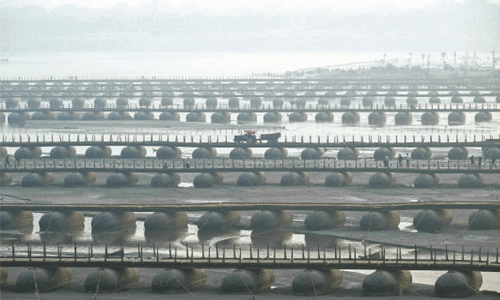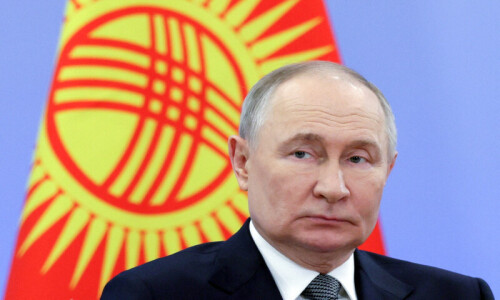ISLAMABAD, Jan 19: The World Bank on Wednesday confirmed receiving Pakistan's request for appointment of a neutral expert under the Indus Waters Treaty to resolve its differences with India over the construction of Baglihar dam on the river Chenab.
"The World Bank will examine the request and follow the procedures laid down by the treaty," said an announcement made by the bank and released by its resident mission in Islamabad.
The announcement also explained in detail the World Bank's role in the matter but clarified that "it (the bank) is not a guarantor of the treaty". It explained that "the World Bank is a signatory to the treaty for certain specified purposes" and added that many of the purposes for which it had signed the treaty had been fulfilled.
The bank said there were now three remaining responsibilities for it under the treaty, relating to the settlement of differences and disputes. Disagreements by the parties on the interpretations of the treaty's provisions are classified into three categories, including 'questions' which are examined by the Permanent Indus Commission, 'differences' by a neutral expert and 'disputes' by a Court of Arbitration.
According to the treaty, the bank said, it has three remaining responsibilities to perform. They are: One, a role for the bank in the appointment of a neutral expert.
The first step under the treaty is to resolve any 'question' through the Permanent Indus Commission itself. If the 'question' is not resolved there, it becomes a 'difference' and is referred to a neutral expert, to be appointed by the two countries or by a third party agreed upon by the two countries.
In the absence of such an agreement, the appointment of the neutral expert would be made by the World Bank, in consultation with the two countries. The decision of the neutral expert on all matters within its competence shall be final and binding.
Two, the management of the World Bank of a trust fund to meet the expenses of a neutral expert. Three, a role for the World Bank in the establishment of a Court of Arbitration.
If the 'difference' does not fall within the mandate of the neutral expert, or if the neutral expert rules that the 'difference' should be treated as a 'dispute', then a Court of Arbitration would be established.
Under the treaty, the World Bank has a role in the establishment of such a court, said the announcement but did not say how long it would take to complete the process.
Pakistan had announced on Tuesday that it had decided to invoke the provisions of the treaty and written to the World Bank to appoint a neutral expert after having failed to resolve the differences at the level of the Permanent Indus Water Commission and bilaterally over the Baglihar dam, being constructed by India on the River Chenab in violation of the treaty. This is for the first time in the 44-year history of the treaty that a matter has been referred to the World Bank for arbitration.















































Dear visitor, the comments section is undergoing an overhaul and will return soon.